Can you believe it?
Let It Be turned 40 last weekend.
Here’s the Wikipedia extract with a brief detail of the album:
Let It Be was the twelfth and final studio album released by The Beatles. It was released on 8 May, 1970 by the band’s Apple Records label shortly after the group’s announced breakup.
Most of Let It Be was recorded in January 1969, before the recording and release of the album Abbey Road. For this reason some critics and fans, such as Mark Lewisohn, argue that Abbey Road should be considered the group’s final album and Let It Be the penultimate. Let It Be was originally intended to be released before Abbey Road during mid-1969 as Get Back, but the Beatles were unhappy with this version, which was mixed and compiled by Glyn Johns, and it was temporarily shelved. A new version of the album was created by Phil Spector in 1970 and finally released as Let It Be, serving as the soundtrack album for the 1970 motion picture of the same name.
While three songs from the sessions were released as singles before the album’s release, “Get Back”/”Don’t Let Me Down” and “Let It Be”, the songs were remixed by Spector for the album.
The rehearsals and recording sessions for the album did not run smoothly. The acrimony that began during the recording of the previous year’s White Album resumed soon after the rehearsals began. At one point, George Harrison walked out and quit the group after severely arguing with both Paul McCartney and John Lennon, only to be coaxed back some days later. The film version is famous for showcasing a number of conflicts between the group members and has frequently been referred to as a documentary intended to show the making of an album but instead showing “the break-up of a band”.
Despite a largely negative review from Rolling Stone magazine at the time of its release, the album was ranked number 86 in the magazine’s list of the 500 greatest albums of all time in 2003.
Let It Be… Naked was released in 2003, an alternative version of the album stripping much of Phil Spector’s production work and using some different versions of songs.
Here’s an article from Rolling Stone magazine this week:
Forty years ago this weekend, the greatest band of all time gave the world their final album together: On May 8th, 1970, the Beatles released Let It Be, the Phil Spector-produced LP that featured hits like the title track, “The Long and Winding Road” and one of John Lennon’s most famous compositions, “Across the Universe.” While the album was recorded during the band’s caustic final days, Let It Be would go on to become one of their most celebrated records: it ranked Number 86 in Rolling Stone‘s 500 Greatest Albums of All Time.
The story behind Let It Be is almost as mythic as the Beatles themselves. The band originally intended to record it as a live-in-the-studio album and movie in 1969. But the ambitious undertaking left the Beatles so weary, they abandoned the project to make Abbey Road instead. Later, Phil Spector added oversweetened orchestral overdubs to many of the album’s tracks — even though the record features some of the band’s strongest rock songs ever (including “Get Back”). In 1970, the Beatles released the documentary film of the same name, which captured the group’s iconic performance atop the Apple Studios building in January 1969. Perhaps due its controversial and detailed look at the Beatles’ interpersonal problems, the film itself remains unavailable on DVD.
Despite the album’s status in rock history, Paul McCartney was never a fan of Phil Spector’s production flourishes on Let It Be. In Rolling Stone‘s original review of the album, writer John Mendelsohn also criticized Spector’s superfluous additions, saying the famed Wall of Sound producer rendered “The Long and Winding Road” “virtually unlistenable with hideously cloying strings and a ridiculous choir” when compared to the version that appeared on the Get Back bootlegs in May, 1969. After years of dissatisfaction with the released version, McCartney announced plans to put out Let It Be… Naked in November 2003, which stripped the Let It Be songs of Spector’s ornate production. (Daniel Kreps – Rolling Stone)
Finally, here’s the sound of “Get Back” in an early incarnation, in rehearsal with John singing lead instead of Paul, and clearly the words to the song are still coming together….
See also: Label Variations – Part Two – Let It Be

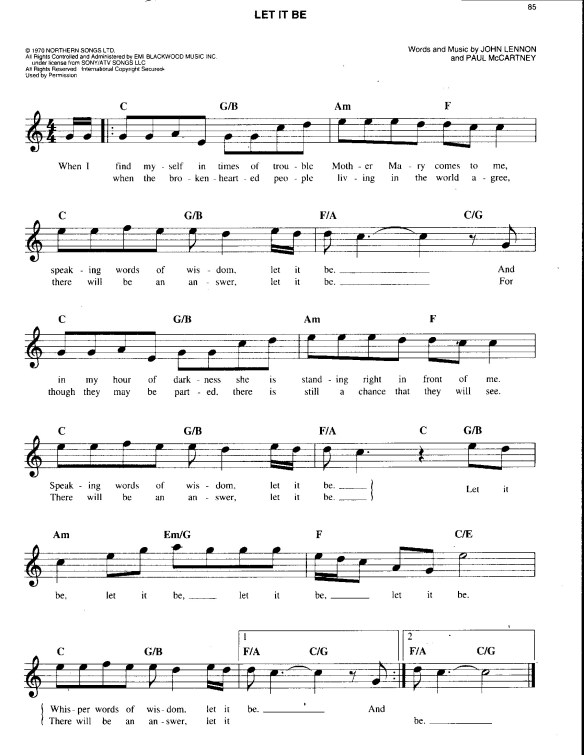
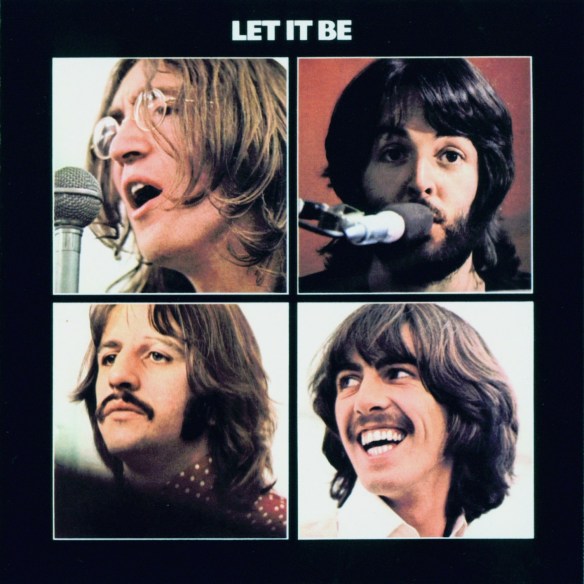
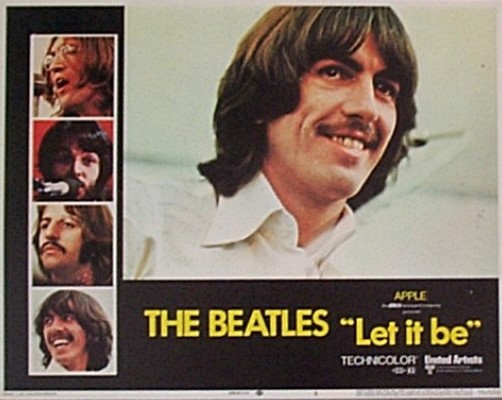
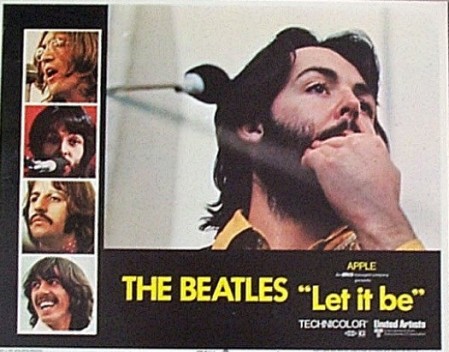
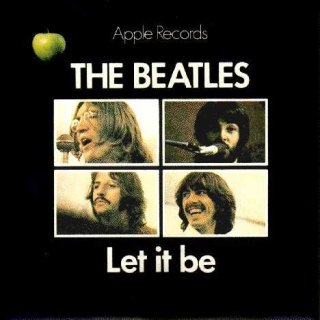
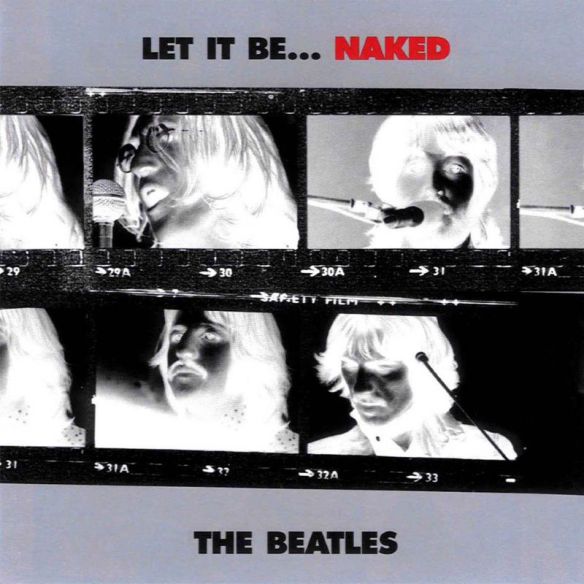
Nice 🙂 I got a copy of all the Beatles Albums via MP3, I got it from my office mate who also lent me original CDs of his Abbey Road & The Beatles, The Beatles (White Album).
Just in case you want to swap notes 🙂
LikeLike
When in service in Italy, I bought a 45 copy of Let it Be at a local Italian record store. When I took it home and played it, the last verses were missing. Paul sings “And when the night is cloudy” and it suddenly trails off and the record ends. I was so disgusted at the time, I went out and bought the Let it Be album so I would have the complete version of the song. In revisiting my records recently, I see that I still have that 45 copy but noticed that it had a very strange looking black and white “Apple” label a well as stated that it was distributed by EMI but apparently pressed in Italy. I have managed to find one copy on the web that looks exactly like mine. It’s at this link:
http://www.discogs.com/Beatles-Let-It-Be-You-Know-My-Name-Look-Up-The-Number/release/2470545
Both the record noted above and mine say “promo” on them but I’m not sure what promo means in this case. It was not a promotional give-away or discounted in any way as I paid full price for it.
I’ve considered the fact that it might be a fake but a fake would at least attempt to mimic the original Apple label. Anyone have any earthly idea what I have?
Thanks much for any insight you might have.
LikeLike
Hi John, I think these are limited edition Juke Box versions of Beatles singles – designed to be put into juke boxes in cafes and bars. They didn’t have the usual Apple labels because of this, and what you have is an Italian version. You can see the Italian words “Edizione speciale per juke-box” written on the left-hand side of the label. I’m really not sure why the song would just run out part way through though! Perhaps someone else has information on that?
LikeLike
Thanks so much beatlesblogger. I totally overlooked the “juke box” wording and, being such, that, in itself, may explain why the song was shortened – to fit the juke box size/time requirements (just a hunch, of course).
I appreciate your prompt reply.
LikeLike
Oops, my mistake the word “promo” is not indicated on the records but is categorized as such on the discog page. Sorry.
LikeLike
To john:Your Let it be pressing is a “normal” italian promo copy for jukebox,so not a counterfeit,is real!
LikeLike
Phil Spector did a good stuff…but with Lennon and Harrison in solo. The way he produced the Beatles did not fit into the Beatles ‘ DNA. For example, his wall of sound in “The long and winding road” was crap. Lennon once said hé did a good job but he said that because for him the primary material coludn’t be released cause something lacked : the get back sessions we’re sort of a demo.
With that version, Paul’s version actuelle, the Beatles ‘ DNA Can be Heard.
LikeLike